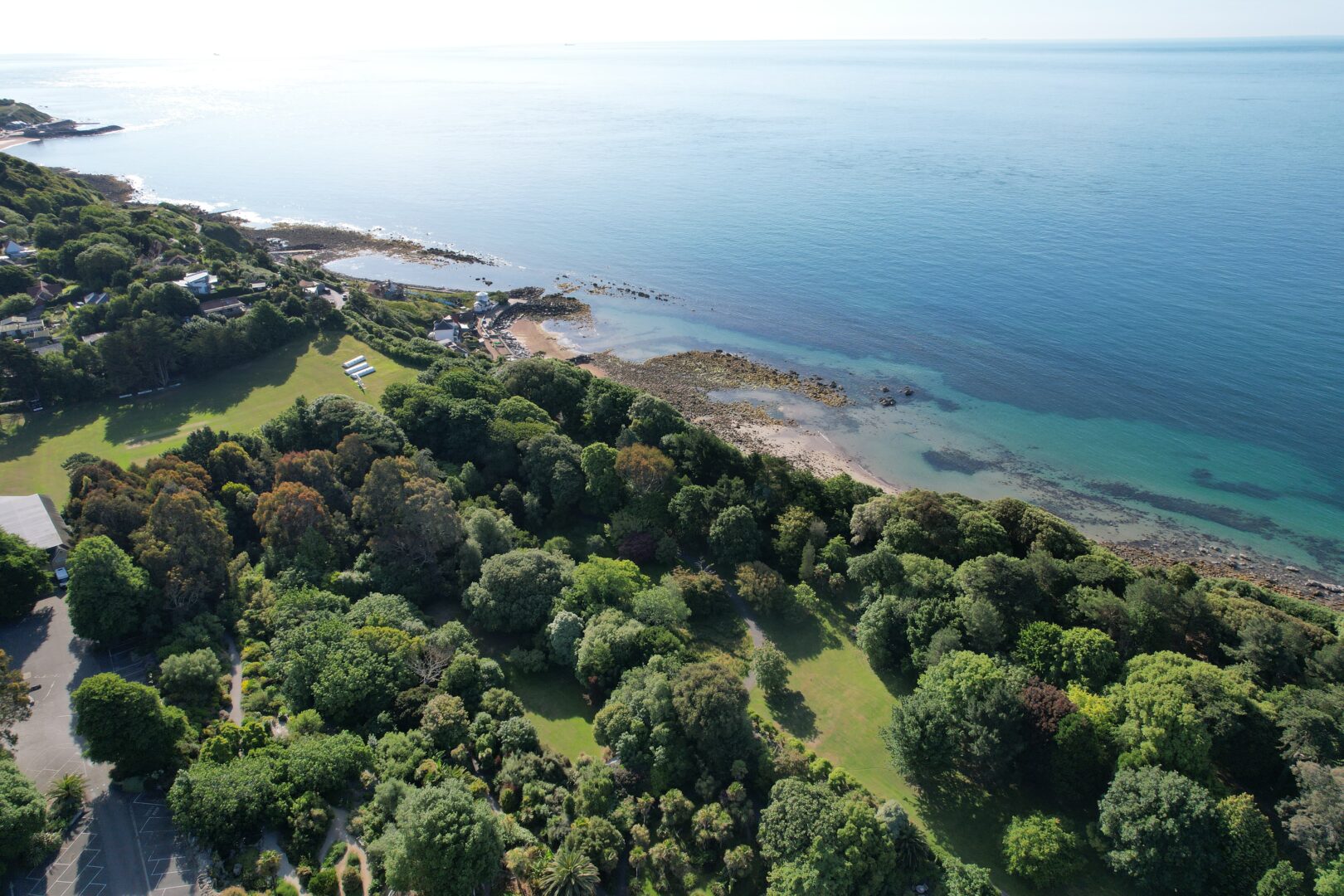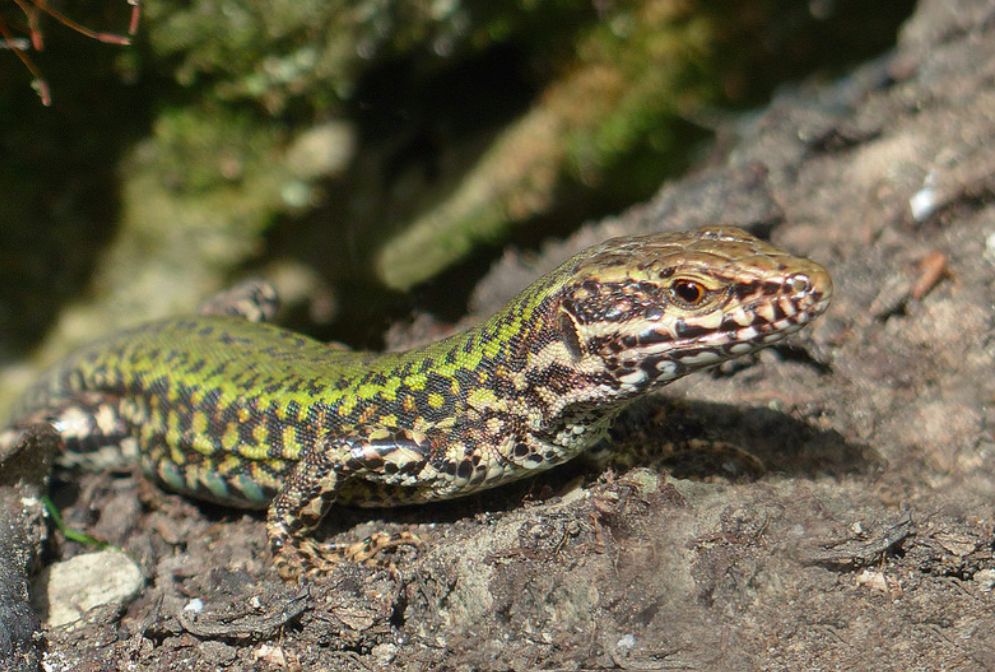
About Us
Here we learn all about Ventnor Botanic Garden. What is there to see and do, where to find us and you’ll learn all about our past, present and future. Ventnor Botanic Garden lies in the remarkable microclimate at the heart of the famous ‘Undercliff.’ This unique garden is protected from the cold northerly winds by chalk downs. Indeed, it holds the warmth from its southerly aspect so well that, combined with the moderating influence of the sea, frost is rarely known. When frost does occur it is usually of short duration and not great severity.
The Garden is unrivalled for its collections of subtropical plants grown unprotected out of doors.
Many of our plants are shown in representations of geographical regions, growing in association with each other as in the wild. We aim to present an immersive experience where the visitor is transported to landscapes from around the world. There’s an impressive collection of succulents and cacti including huge spiky agaves and flowering aloes. Sun-loving herbs, giant echiums, vibrant tender bedding plants and mature palm trees thrive here, as do many colourful South African treasures, Australian eucalyptus, bottlebrushes, tree ferns, and much more.
Discover The Ventnor Method – Our very own take on botanic gardening in this unique micro-climate and ecosystem.
We are thrilled to announce our new podcast, A Botanic Garden for Climate Change!
A Botanic Garden for Climate Change takes you on a captivating journey through the lush landscapes of Ventnor Botanic Garden and is aimed to appeal to all generations with a keen interest in gardening and climate change, but can be enjoyed by any podcast fan.
A Botanic Garden for climate change is off to a hot start with the first episode exploring the innovative Ventnor Method, delving into the world of rewilding, and shinning a spotlight on the resilient plant life that thrives in the face of our changing climate and has generated a ton of buzz with its first episode!
During Episode 2 we dive into the fascinating world of sustainable horticulture at Ventnor Botanic Garden. Join us as we explore two groundbreaking concepts that are reshaping the way we approach gardening in the face of climate change. ”Rewilding” and the innovative ”Ventnor Method”.
In the first segment, we unravel the mysteries of rewilding, a transformative approach that seeks to restore and revitalize echo systems by allowing nature to reclaim its space.
Discover how rewilding principles are being integrated into gardening practices, promoting biodiversity, and creating resilient landscapes that adapt to the challenges of our changing climate. Next, we delve into the Ventnor Method, a cutting-edge gardening technique developed at Ventnor Botanic Garden. Explore how this method harnesses the power of biodiversity, soil health, and sustainable practices to create thriving thriving and resilient gardens. Learn from the experts as they share insights on cultivating plants that not only survive but flourish in the face of climate uncertainty. This episode serves as a gateway into the world of climate change gardening, offering practical tips, inspiring stories, and expert opinions to empower listeners in their gardening journeys.
Episode 3 serves as a gateway into the world of climate change gardening, offering practical tips, inspiring stories, and expert opinions to empower listeners in their own gardening journeys.

The importance of our micro-climate
The history of Ventnor Botanic Garden starts and stops with its microclimate. With an average rainfall of 28 inches, its climate is more akin to the Mediterranean. We are 5C hotter than the rest of the Isle of Wight and the UK mainland; hence ‘Britain’s Hottest Garden’. As such we are a bellwether for climate change, for what is likely to grow and not grow in UK gardens in the future. From the Canna Lilies we no longer lift in winter to the plants that we alone can grow outdoors in the UK we take pushing the boundaries of half hardiness seriously. We rarely get a frost and if we do the Garden heats quickly when the sun returns due to the temperature buffer of the English Channel, the south-facing aspect of the Undercliff, and the shelter from north winds which pass overhead.
A HISTORY OF HEALING
The microclimate originally attracted the National Hospital for Diseases of the Chest in the 1860’s and 150 years later the health-giving attributes of the microclimate continue to benefit VBG plants and Garden visitors. Dr Arthur Hill Hassall, a polymath of his times, visited Ventnor to recuperate from an illness and foresaw the role the micro climate could play in alleviating the scourge of the day – tuberculosis. Over time families stepped up as benefactors to build the hospital wings or blocks as they came to be called. Each family had their crest installed over the entry door of the block they financed. These crests are on display today in our edulis Restaurant.The history of Ventnor Botanic Garden starts and stops with its microclimate. With an average rainfall of 28 inches, its climate is more akin to the Mediterranean. We are 5C hotter than the rest of the Isle of Wight and the UK mainland; hence ‘Britain’s Hottest Garden’. As such we are a bellwether for climate change, for what is likely to grow and not grow in UK gardens in the future. From the Canna Lilies we no longer lift in winter to the plants that we alone can grow outdoors in the UK we take pushing the boundaries of half hardiness seriously. We rarely get a frost and if we do the Garden heats quickly when the sun returns due to the temperature buffer of the English Channel, the south-facing aspect of the Undercliff, and the shelter from north winds which pass overhead.
SUSTAINABILITY
Responsible resource management is at the heart of everything we do at Ventnor Botanic Garden, from the way we heat our buildings to how we grow the produce served in our restaurant. Our ethics are simple, help look after the planet and it will look after us. With climate change an ever-increasing concern to us all, we hope to become a carbon-neutral garden, doing our bit for the planet.
An eye to the future
In our way of thinking, saving Ventnor Botanic Garden for future generations means standing firmly on the shoulders of the past. We believe the role of the botanic gardens will become more and more appreciated over time as safeguarding the world’s flora becomes a priority. We are proud to have kept this small, provincial garden on the map.
Whilst you’re here
Is Ventnor Botanic Garden Dog Friendly?
Yes, we pride ourselves on being a dog-friendly site. With dog water bowls, large open spaces to run around and plenty of sticks for throwing, we welcome dogs to Ventnor Botanic Garden. Click here for more information.

Kids Love VBG
A Garden perfect for discovery and adventure! With a giant colouring wall, children’s playground, Lizard Safari Trails and Nature Hunts, kids can relax, have fun and won’t even realise they’re learning whilst mums and dads can take a stroll and enjoy the peace and serenity of each location. Take comfort in the food served in both our Plantation Room Café and edulis Restaurant, using simply fresh, local, healthy ingredients with no fryers or microwaves around! The views from our Plantation Room Café are out of this world and there are plenty of perfect picnic spots throughout the Garden too.
Head outside and let the kids pretend they’re one of history’s greatest explorers as you explore areas of the Garden laid out to represent different countries and continents of the world; from Australia to Japan and many more exotic places in between.
Discover our champion trees and secret spots with garden trails available to follow and get off the beaten track – there is no need to keep off the grass at Ventnor Botanic Garden! Learn about our Garden history with Tunnel Tours and our Heritage Centre. Why not bring your own games too? With 22 acres available, we have the ideal space for hide and seek, throwing, jumping, skipping and running!
Tel: 01983 855397 | Ventnor Botanic Garden Community Company C.I.C | Company Number: 07976468 | Registered Address: Undercliff Drive, Ventnor, Isle of Wight, PO38 1UL
